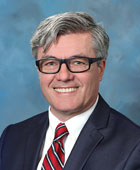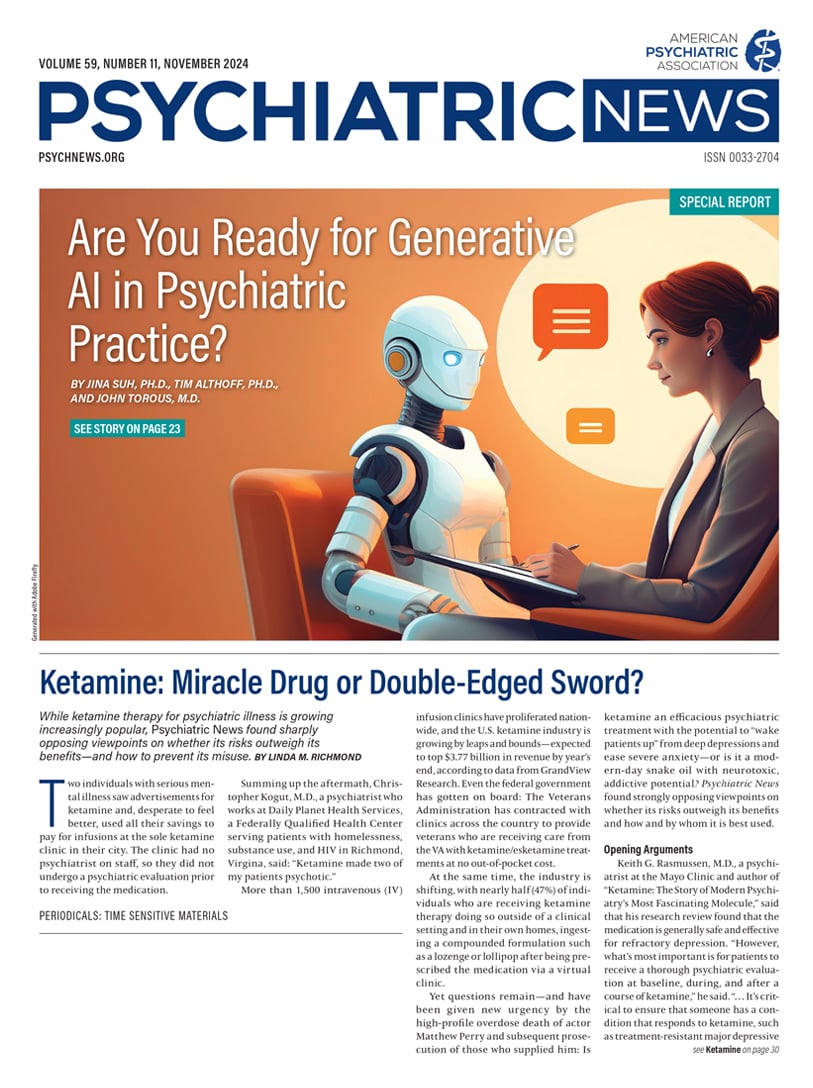Each July 1, a new generation of interns gets a seat at the high table of psychiatry. On the one hand, it is the privilege of the more senior members of our profession to bring to this table a body of instrumental knowledge, and the responsibility of the junior psychiatrists to master this knowledge and carry it forward. On the other hand, it is the privilege of junior psychiatrists to skeptically question the established body of knowledge, with the goal of separating pragmatism from dogmatism, while it is the seniors’ responsibility to consider any fresh perspectives and criticism.
In this spirit, at the halfway mark of the internship year, I offer five reflections that I hope my junior colleagues will consider as they continue their wondrous journey into the heartlands of psychiatry.
1. Master the Fundamentals
Know diagnostic criteria—even when they seem arbitrary; master treatment algorithms, even when the evidence seems limited. Engage in deliberate learning. There is no substitute for experiential knowledge, so be intentional in learning from the people who know more than you do: your senior residents, your attendings, and, most importantly, your patients.
Seek feedback: You do not know what you do not know, so ask others to help you identify your blind spots. Learning requires us to step out of our comfort zone. Ask your supervisors, colleagues, and patients to give you honest feedback. Give people permission to criticize you.
Read textbooks: Of course, textbooks are obsolete by the time they come out. That includes the latest edition of DSM and the most recently published volumes on neuroscience and psychopharmacology. At the same time, textbooks are showcases, where fragments of knowledge are integrated into a coherent framework; they create sense out of an informational chaos. While mindful of their limitations, master a few fundamental psychiatric texts. There is no better way of organizing your internal library of psychiatric knowledge.
Aim to read the full DSM at least once. Study one textbook on each of the foundational topics of psychiatry, including psychiatric interviewing, psychopathology, psychopharmacology, and psychotherapy. Bring it all together with at least one comprehensive textbook of psychiatry. Make it a habit to dedicate one hour a day to clinical reflections and foundational reading.
2. Hone Your Clinical Skills
Embrace clinical training as apprenticeship: Clinical training is an apprenticeship where learning occurs by doing—and, when it comes to practice-based mastery, numbers matter. The more patients you see, the more proficient you become. Aim to see lots of patients, with a variety of demographics, diagnoses, and treatments, because a physician’s expertise is predicated on having seen not only herds of “horses” but also enough “zebras” to know a zebra from a horse.
Be curious and diligent: Do not make diagnoses when clear criteria are not met. Do not base a diagnosis on recent history as opposed to lifetime course. Ensure your diagnoses meet all criteria, consider the longitudinal course, and explore comprehensive differentials. Consider primary versus secondary. Assess severity and function. Define specifiers.
Be a diagnostic sharpshooter: Do not take the easy “unspecified” way out. While this is appropriate in settings where there are limited opportunities to get a complete history (such as emergency department), with sufficient time, your information base should expand, meaning that you should aim to specify your diagnoses. Here is a question to ponder: Following three days of hospitalization or three outpatient visits, hasn’t that initial “unspecified” perhaps become unjustified?
Develop a critical eye: When a patient is not doing well, there is often a narrative created by the many physicians preceding you that aims to persuasively explain unusual doses or creative combinations of medications. Be skeptical. Storytelling is rarely evidence-based. Question medication combinations or doses that are not clearly justified. When a reasonable treatment is not working, question the diagnosis.
Craft thoughtful treatment plans: The rationale for each of your treatment choices needs to be clear, as opposed to “they are all similar” (even when they are all similar) or “this is a broad-spectrum intervention” (even when it is a broad-spectrum intervention).
Unless the treatment is ideally effective and ideally well tolerated, do not “stay the course.” “If it ain’t broke, don’t fix it” applies to treatments that have resulted in remission, meaning it does not apply when the outcome is decreased hospitalizations rates, less severe symptoms, or other less-than-remission responses.
Aim high! Do not settle for symptom reduction or response. Your treatment goal is meaningful living—across the occupational, relational, and self-regulation domains.
3. Be Empathetic and Patient-Centered
You will count cases, but you will care for individuals: Your patients are not horses, nor are they zebras. They are not cases, nor diagnoses.
Mrs. Holmes is not “a case of depression” but a pleasant elderly lady, still deeply grieving a son she lost 10 years ago. Alex is not “a case of schizophrenia” but a young man who struggles as a junior in college, after his days were taken over by terrifying voices telling him his family members were replaced by doubles. As a healer, you are connecting to your fellow human beings whose mental pain you can help shoulder and hopefully relieve.
Bedside manner is the cornerstone of good medicine: Psychiatry is no exception to that. The quality of rapport appears to be a stronger predictor of clinical outcomes than the quality of a clinician’s expertise (Birkhäuer, et al., 2017)—even for patients with psychosis (Priebe, et al., 2011).
It is worth reiterating that bedside manner refers to how doctors conduct themselves “at the bedside,” with the patient present. Among other things, this means that you share your diagnosis and formulation with the patient, including difficult diagnoses such as borderline personality disorder or psychosis. Do not make plans behind your patient’s back! Master the skill of engaging your patient with your treatment plan.
Aim to have your patient listen in when you discuss their case, be it outpatient, inpatient, or in the emergency department. Rounds are meant to be conducted not in a conference room or a hallway, but with the patient present. Find a way to respectfully share findings from the medical record or collateral information along with your formulation, and seek their input regarding the assessment and treatment recommendations. (
Editor’s note: For more discussion about patient access to medical documentation, see “
Ethics Corner,” and “
Residents’ Forum.”)
4. Use Common Sense
Simple beats complex: As a result of training in highly complex medical environments, physicians tend to implicitly see complex scenarios as more likely than simple scenarios. Biased toward complexity, we need to make a conscious effort to not overlook simpler and potentially more effective diagnostic formulations and therapeutic solutions. Be aware of the tendency to overlook “simple” simply because it might be boring.
Basic needs come first: Sleep, nutrition, and exercise are foundational to mental health (Rössler, 2016). Physiological needs are sine qua non of any effective treatment plan and, often, are also the lowest-hanging fruit. For as long as your patient will not sleep, eat, drink, or move properly (within the boundaries of given physical limitations), their mental distress will persist. Correct any basic abnormalities before or alongside other complex treatment recommendations.
Safety is not limited to danger to self and others: No psychotropic medication works when safety and security are under threat. Your patient might face many threats, some obvious, some subtle. Threats to safety are commonly associated with guilt and shame; when that is the case, you will not know what these challenges are unless you specifically ask. Ask!
Consider the use of non-prescribed substances: In addition to assessing use of the “heavy drugs,” remember that regular use of alcohol, cannabis, and caffeine as well as many OTCs and supplements can affect mood, sleep, and anxiety. Often used as attempts to self-treat, both the “heavy” and usually underappreciated “common-use” substances complicate co-existing psychiatric issues. Guilt and shame are almost always present—meaning, unless you ask, you will not know. Ask!
Quantify compliance: Medications, when not taken, do not work. Across diagnoses, the most common cause of partial response or persistent symptoms is non-adherence. Understand how your patient is taking their medications. Quantify!
5. Stay Safe
Trust your gut: When, despite checking all the boxes, you experience an “I’m in danger” gut feeling, run. I do not mean that literally—at least, not most of the time—but do pay attention to danger signals. When you feel compelled to fight or flight, you will not fight, but you will take measure to stay safe. When in doubt, set boundaries, disengage, and, if necessary, fully retreat.
While these are my top five, I know that my junior and senior colleagues have many other useful tips. If you would like to share your own, write to us at
[email protected]. ■
References
Birkhäuer J, Gaab J, Kossowsky J, et al.: Trust in the health care professional and health outcome: a meta-analysis. PLoS ONE 2017; 12:e0170988
Priebe S, Richardson M, Cooney M, et al.: Does the therapeutic relationship predict outcomes of psychiatric treatment in patients with psychosis? a systematic review. Psychother Psychosom 2011; 80:70–77
Rössler W: Nutrition, sleep, physical exercise: impact on mental health. Eur Psychiatry 2016; 33:S12

